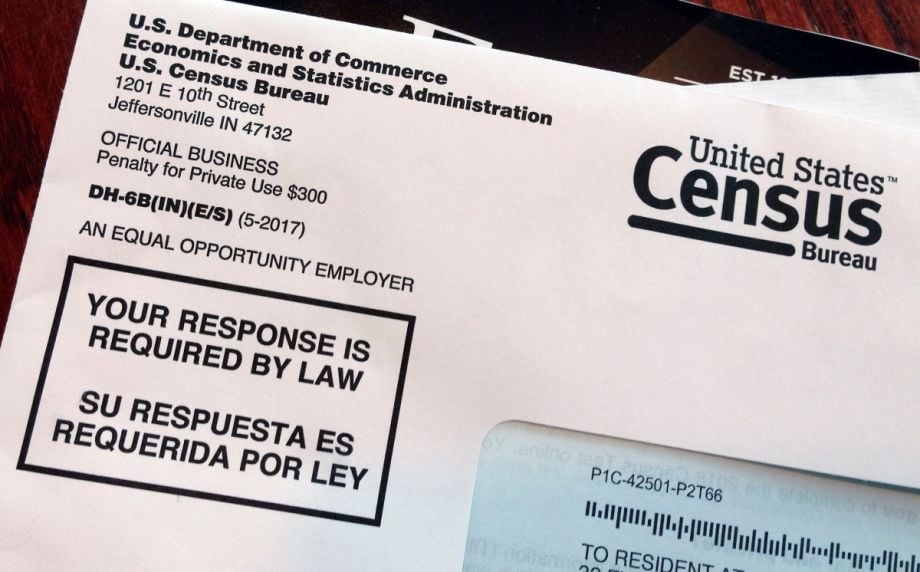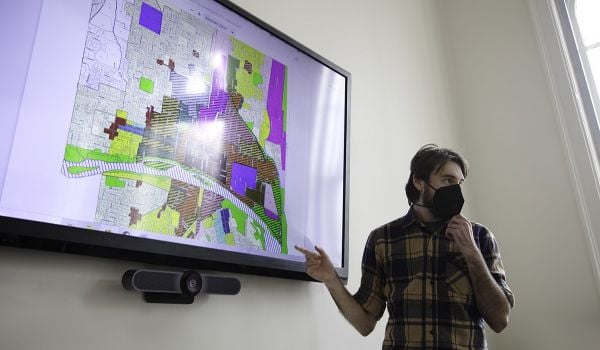A federal judge has told the Trump administration that a question about citizenship can’t be on the 2020 census, the Associated Press reports.
U.S. District Judge Jesse Furman’s 277-page decision said that the question could be constitutional, but Commerce Secretary Wilbur Ross had not followed proper procedure when adding it.
U.S. law says that Congress needs three years’ notice before adding a question about citizenship to the census.
Cities, states and immigrants’ rights groups sued the administration, saying that the question was added to discourage immigrants from participating, even those who are here legally. By law, the census is supposed to count everyone living in the U.S., including noncitizens who are here legally as well as those who do not have legal status. If noncitizens were asked about citizenship status on the census, they might decline to participate, which could lead to an undercounting of population in states and cities that tend to lean liberal. The Census Bureau’s own staff, the AP reported, estimates that adding a citizenship question would lower responses in households with at least one noncitizen by 5.8 percent. This could affect how congressional districts, which are required to have equal populations, are drawn. The census also helps the government equitably distribute funds for things like education, healthcare, and highways.
“The federal government should encourage every person living in our country to participate in the Census instead of putting up barriers that intimidate people from being counted,” Chicago Attorney General Lisa Madigan said last year, in a statement decrying the citizenship question.
The administration said it needed more accurate citizenship data so the Department of Justice could better enforce the Voting Rights Act, but that explanation later “shifted,” the New York Times reported in July. Commerce Secretary Ross later revealed that he had asked the Justice Department to make the request. Judge Furman pointed out that the Justice Department “has shown little interest in enforcing the Voting Rights Act.”
Some far-right groups are hoping to sidestep the census question altogether and simply exclude undocumented immigrants from being counted when political boundaries are redrawn. Alabama’s Attorney General sued the census bureau to do exactly that, as it is at risk of losing one House seat and an electoral vote, since it has grown slower compared to other states over the last decade.
“If non-citizens are counted for congressional apportionment purposes, Alabama’s political power will likely be diluted as one of our congressional seats is likely taken by California or some other state that harbors large numbers of illegal aliens,” Rep. Mo Brooks (R-AL 5) told Al.com. “We cannot allow a few states to cheat the rest of America by promoting illegal immigration with their sanctuary policies and then reward their lawless conduct with even more representation in Congress and the Electoral College that elects American presidents.”
Judge Furman has ordered the administration to stop its plans to put the question on the 2020 census, but the decision is not the last word on the citizenship issue, the AP said. A separate suit on the same issue, filed by California, is underway, and the administration is expected to appeal to the Supreme Court. The Washington Post reports that the Supreme Court is already planning a hearing on Feb. 19 on one aspect of the case, but “it seems likely that the administration would ask the court to broaden that inquiry.”
The census forms must be finalized by June, the Post said.

Rachel Kaufman is Next City's senior editor, responsible for our daily journalism. She was a longtime Next City freelance writer and editor before coming on staff full-time. She has covered transportation, sustainability, science and tech. Her writing has appeared in Inc., National Geographic News, Scientific American and other outlets.
Follow Rachel .(JavaScript must be enabled to view this email address)








_600_350_80_s_c1.jpg)







